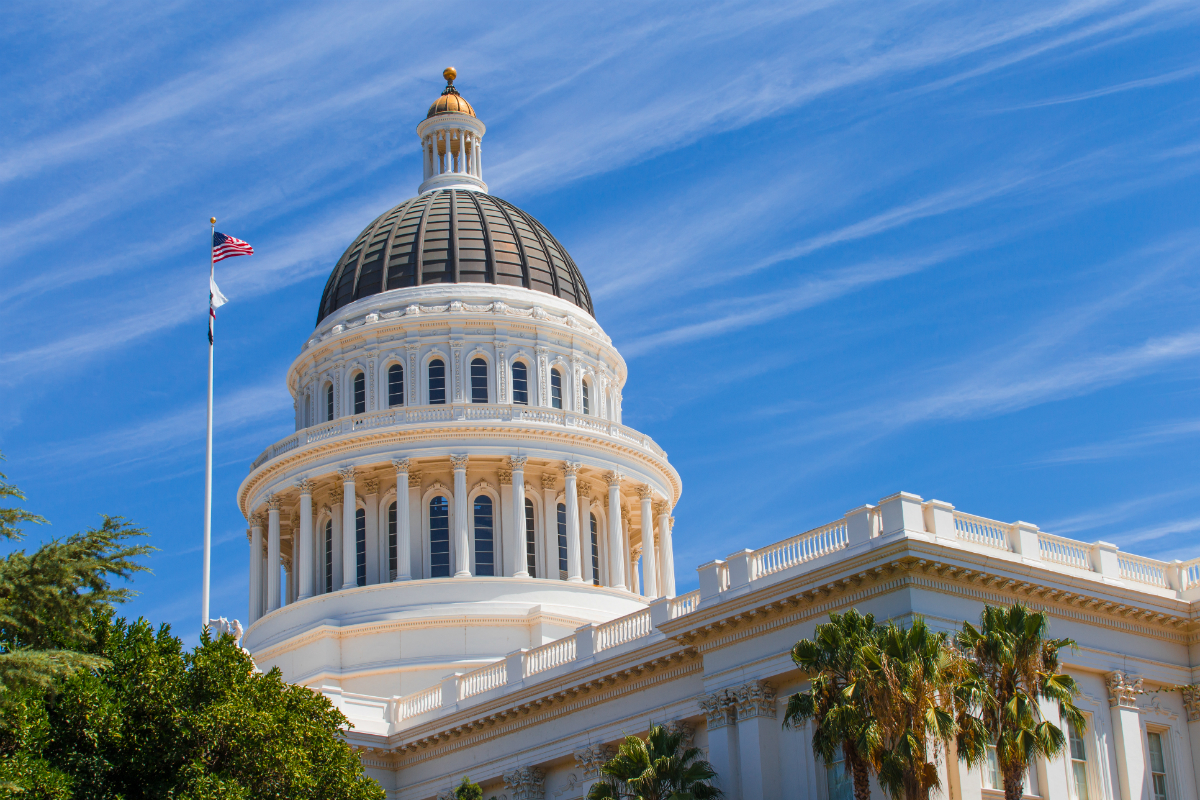Gov. Gavin Newsom released his much-anticipated budget revision on Thursday, May 9, taking a cautious approach in most areas despite larger than expected growth in state General Fund revenues.
Overall, the May Revision projects an increase of $3.2 billion in state General Fund short-term revenues over the January budget. The revision also includes a softening of revenue estimates beyond the budgeting period by lowering expectations in 2022–23 and beyond.
Education funding highlights from the May Revision include:
A reduction in the statutory cost-of-living adjustment from 3.46 percent in the January budget to 3.26 percent for Local Control Funding Formula grants and the handful of categorical programs that receive COLA, such as special education and child nutrition.
Proposition 98 funding is up from the January budget over the three-year period by a total of $746.5 million as follows:
- $78.4 million in 2017–18 (prior year adjustment)
- $278.8 million in 2018–19 (current year)
- $389.3 million in 2019–20 (budget year)
CalSTRS
The Administration proposes increasing its non-Proposition 98 General Fund commitment to the CalSTRS system on behalf of school employers from the $3 billion proposed in January by an additional $150 million in the May Revision, for a total amount of $3.15 billion. The additional $150 million in one-time funds is proposed to buy down employer contribution by an additional 0.4 percent, representing an employer contribution level of 16.7 percent for 2019–20. The employer rate buy down for 2020–21 would remain the same as in the January budget at 17.1 percent.
CalPERS
No allocation of state General Fund monies is proposed for the school pool in CalPERS.
Special Education
In January, the Administration proposed $577 million, composed of both ongoing and one-time funds, for special education with a new allocation method outside of the current special education funding model. In the May Revision, an additional $119.2 million is proposed for special education with the new allocation method but commits the new total $696.2 million entirely to ongoing support.
Full-day kindergarten
The May Revision includes a reduction of $150 million, for a new total of $600 million in one-time non-Proposition 98 funding to districts that do not currently offer the full-day kindergarten to construct new facilities or retrofit existing facilities. The proposal increases the state match to 75 percent, from 50 percent in the January proposal, and also extends available funding over three years with the priority in the first two years for those school districts that do not currently provide full-day kindergarten.
Charter schools
While the Governor notes the work being done behind the scenes by State Superintendent of Public Instruction on charter schools is expected to be completed by July 1 of this year, the May Revision includes four specific charter school transparency provisions that will likely be included along with the budget and therefore precede any other charter reform bills. The issues being addressed, according to the Administration, are to “level the playing field for both traditional and charter schools” and include:
- Prohibit charter schools from discouraging students from enrolling in a charter school or encouraging students to disenroll from a charter school on the basis of academic performance or student characteristic, such as special education status.
- Prohibit charter schools from requesting a pupil’s academic records or requiring that a pupil’s records be submitted to the charter school prior to enrollment.
- Create a process for families of prospective and current charter school students to report concerns to the relevant authorizer.
- Require the Department of Education to examine the feasibility of using data from the California Longitudinal Pupil Assessment Data System to identify charter school enrollment disparities that may warrant inquiry and intervention by corresponding authorizers.
Prop 98 Reserve
In one of the biggest surprises, the state General Fund and Proposition 98 are doing well enough that the state is, for the first time, required to make a contribution into the Public School System Stabilization Account, or “Prop 98 Rainy Day Fund” for short. A deposit into the Prop 98 Rainy Day Fund, a mechanism to lessen the impact of volatile state revenues on K-14 schools, will occur in 2019–20. The deposit of $389.3 million is equal to the difference between the Test 1 funding level and the prior year funding level adjusted for growth and inflation, but not more than the amount of capital gains revenues in excess of 8 percent of total revenues. What this translates to is about $65 per average daily attendance being put into a bank account rather being sent out to local educational agencies.
In an emailed article sent to members, CSBA pointed out that this contribution to the Prop 98 Rainy Day Fund could trigger the school district reserve cap, IF the contribution level reached three percent of the K-12 portion of the Proposition 98 guarantee. Three percent would total more than $2 billion, so in the May Revision, the Administration notes that they do not anticipate the reserve cap being triggered in 2020–21. That is good news for school districts that would be impacted by the cap, such as basic aid districts or those districts with less than 2,500 ADA.
Other proposals included in the May Revision:
Teachers loans and training
The May Revision proposes $89.8 million in one-time non-Proposition 98 General Fund to provide an estimated 4,500 loan assumptions (repayments) of up to $20,000 for newly credentialed teachers to work in high-need schools for at least four years. Funds will be prioritized for teachers in hard-to-hire subject matter areas (special education and STEM) and school sites with the highest rates of non‑credentialed or waiver teachers. This program will be administered by the CA Student Aid Commission in consultation with the California Commission on Teacher Credentialing.
Additional funding proposed in the May Revision for teacher retention and training include:
- $44.8 million one-time non-Proposition 98 General Fund to provide training and resources for classroom educators, including teachers and paraprofessionals, to build capacity around inclusive practices, social emotional learning, computer science and restorative practices as well as subject matter competency, including STEM.
- $13.9 million ongoing federal funds for professional learning opportunities for public K-12 school administrators to provide the knowledge, skills, and competencies necessary to successfully support the diverse student population served in California public schools.
Computer science and technology funding
The Administration will develop a comprehensive plan to achieve the goal of providing access to computer science education for all students for consideration as part of next year’s budget.
- $15 million one-time non-Proposition 98 General Fund for broadband infrastructure
- $1 million one-time non-Proposition 98 General Fund, available over four years, to the State Board of Education to establish a state Computer Science Coordinator.
Other proposed adjustments
- Classified School Employees Summer Assistance Program — An increase of $36 million one-time Proposition 98 General Fund for an additional year of funding for this program, which provides a state match for classified employee savings used as income during summer months.
- AB 1840 Adjustments — An increase of $3.6 million one-time Proposition 98 General Fund for Inglewood Unified School District and $514,000 one-time Proposition 98 General Fund for Oakland Unified School District, amounting to 75 percent of the operating deficit of these districts, pursuant to Chapter 426, Statutes of 2018 (AB 1840).
- Wildfire-Related Cost Adjustments — An increase of $2 million one-time Proposition 98 General Fund to reflect adjustments in the estimate for property tax backfill for basic aid school districts impacted by 2017 and 2018 wildfires. Additionally, an increase of $727,000 one-time Proposition 98 General Fund to reflect adjustments to the state’s student nutrition programs resulting from wildfire-related losses.
- San Francisco Unified School District Excess Tax Correction — An increase of $149.1 million one-time Proposition 98 General Fund to reflect a technical adjustment to excess property taxes related to a misallocation of these funds in 2016–17. Specifically, San Francisco did not properly calculate the excess tax allocation for the school district, which received taxes that should have been allocated to the county and city and special districts.
What is next?
With the release of the May Revision, budget negotiations kick into high gear as the Legislature will move to get a budget to the Governor by June 15th. While the Governor’s proposals drive the budget conversations almost exclusively, there are other issues that legislators will want included in the budget and many have made their requests known to the education budget subcommittees in both the Assembly and Senate. Issues such as a COLA for home-to-school transportation, increasing funding beyond statutory COLA for LCFF by at least $1 billion, special education equalization and a host of other issues have been raised.





